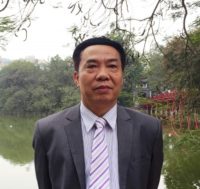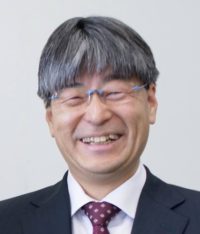Last updated: May 1, 2020
Cancellation of the 59th JACET International Convention (Kyoto, 2020)
May 1, 2020
Dear JACET members and supporters
On behalf of JACET, I would like to express my sincere gratitude for your continued support of the activities of the Japan Association of College English Teachers (JACET).
JACET was planning to hold “The 59th JACET International Convention (Kyoto, 2020)” for 3 days from September 8 (Tuesday) to September 10 (Thursday), 2020 at Doshisha University, Shinmachi Campus in Kyoto. However, considering the circumstances of the COVID-19 pandemic, JACET has decided to cancel the convention. The JACET Board of Directors and the International Convention Organization Committee are concerned about those involved in the preparation for the event as well as those who were planning to participate. Another factor of concern was the sudden need for universities to switch to online teaching and the burden on members involved in the transfer.
We would like to ask for your understanding and continued support and cooperation regarding this decision, despite the fact that it has caused a great amount of inconvenience to the convention venue Doshisha University, many educational institutions, affiliated academic societies in Japan and overseas, supporting and sponsoring organizations, facilities for accommodations and the convention party, as well as all JACET members.
In this unprecedented global crisis, we need to concentrate on how to meet our educational goals and at the same time acknowledge the rapid spread of distance learning. We look forward to further developing English education in line with the times, and we ask for your continued support. At present, we are planning to hold “The 3rd JAAL in JACET” on December 5 (Saturday), 2020 at Takachiho University and “The 60th JACET Commemorative International Convention (Hiroshima, 2021)” from August 27 (Friday) to 29th (Sunday), 2021 at Yasuda Women’s University. We hope to see you at these and other future JACET events.
Please keep safe and well in these trying times.
Sincerely yours,
Hajime Terauchi, President
The Japan Association of College English Teachers
2020年5月1日
一般社団法人大学英語教育学会
会員各位
一般社団法人 大学英語教育学会
会長 寺内 一
大学英語教育学会(JACET)第59回国際大会(京都、2020)の中止について
時下益々ご清祥のことと存じます。平素より大学英語教育学会の活動にご尽力、ご協力を賜り、厚く御礼申し上げます。
さて、本学会では、2020年9月8日(火)より9月10日(木)までの3日間、同志社大学新町キャンパス(京都市上京区新町通今出川上ル近衛殿表町159-1)において「大学英語教育学会(JACET)第59回国際大会(京都、2020)」の開催を予定しておりましたが、新型コロナウイルス感染拡大による社会情勢、参加関係者の健康を考慮し、また、本学会会員の多くが携わる大学教育が混乱する最中においては、まずは各人の本務である教育に専念すべき状況と判断し、本国際大会の中止を決断いたしました。
多くの教育関係機関、開催会場である同志社大学、国内外の提携学会、賛助・協賛団体、宿泊・懇親会施設、学会会員の皆様のご支援をいただいて準備を進めてきた中での中止であり、多大なるご迷惑をお掛けする結果となりましたが、本決定に対するご理解と引き続きのご支援とご協力を賜りますようにお願い申し上げます。
本学会としては、この未曽有の事態において、教育に傾注すると同時に、遠隔授業が急速に浸透する中、その支援と研究の重要性を認識しており、現在、様々な企画を打ち立てているところです。2020年12月5日(土)に高千穂大学にて開催予定の「第3回JAAL in JACET学術交流集会」、2021年8月27日(金)から29日(日)に安田女子大学で開催予定の「大学英語教育学会(JACET)第60回国際大会(広島、2021)」において、皆様の更なるご支援をいただくことになるかと存じますが、時代に即した英語教育の更なる発展のために会員一丸となって努力して参りますので、どうぞよろしくお願い申し上げます。
The 59th JACET International Convention (Kyoto, 2020)
Dates: September 8th (Tue.) – 10th (Thu.), 2020
Venue: Doshisha University, Shinmachi Campus
159-1 Konoeden Omote-cho, Imadegawa-agaru,
Shinmachi-dori, Kamigyo-ku, Kyoto, 602-8580 JAPAN
Theme: “Well-being” in English Education: Discovering the Possibilities for Learners, Teachers, and Society
Abstract:
Why do we learn? It is primarily because learning can lead to happiness and well-being. The agents of learning who strive for this well-being are, of course, the learners and the teachers within society. In EFL contexts such as Japan and many Asian countries, though foreign language learning opportunities are diversifying, learning occurs most often in the classroom. Therefore, both the learners and the teachers should know how to learn and grow together. Much of the research in foreign language education has aimed at this lofty goal.
In recent years, as the field of foreign language education has flourished, eyes are turning towards a multitude of issues including curriculum reform, technological development, and quality assurance in education. This may be an appropriate time to stop and take stock of the developments in the fields of applied linguistics and language education and to reevaluate the basics and fundamentals.
At the 59th JACET International Convention (Kyoto, 2020), we welcome researchers and practitioners from a diverse range of fields, such as educational psychology, methodological research, curriculum design, educational engineering, teacher education, evaluation, instructional design and more, to come together and reconsider the well-being of learners, teachers, as well as society as a whole through lively debate and to further the discussion on the nature of foreign language education.
Inquiries: The JACET International Convention Organizing Committee
TEL: 03-3268-9686
e-mail:
大学英語教育学会(JACET)第59回国際大会(京都、2020)
日 程: 2020年9月8日(火)・9日(水)・10日(木)
会 場: 同志社大学新町キャンパス
〒602-8580 京都市上京区新町通今出川上ル近衛殿表町159-1
テーマ: 英語教育における「ウエルビーイング」
― 学習者、教師、社会の可能性を拓く―
主 旨:
学びは何のために存在するのか。それは「学ぶ」ことで人が幸福、「ウエルビーイングの状態」になるからである。人に幸福をもたらす学びの行為主体者(agent)は、「社会」の中に位置付けられた「学習者」であり、また「教師」でもある。日本や多くのアジアの国々のようなEFLの環境においても、外国語学習の機会は多様化しつつあるが、主たる学びの場は教室であり、その学びのコミュニティーの中で学習者と教師が共に学び成長することが重要となる。そのような教育を目指して数多くの外国語教育研究や授業改善の取り組みが行われてきたことに疑いの余地はない。
近年、外国語教育関連分野の研究の隆盛とともに、カリキュラム改革、技術革新、教育の質保証など多様な重要課題に目が向けられてきた。しかしながら、ここで今一度立ち止まり、教室における学習者と教師の学びという基本的かつ根源的な視座から、応用言語学や言語教育研究分野の諸問題を再検討する必要はないだろうか。
大学英語教育学会(JACET)第59回国際大会(京都、2020)では、外国語教授法、学習者心理、教育設計、教育工学、教師教育・教員養成、言語評価、カリキュラム開発、その他関連諸分野の教育・研究に携わる様々な立場の方々に参加していただき、「学習者」「教師」および「社会」という教育の原点に立ち戻る本質的なテーマについて議論を交わし、あるべき外国語教育の姿を浮き彫りにする機会としたい。
問い合わせ先: 大学英語教育学会国際大会組織委員会
TEL: 03-3268-9686
e-mail:
Plenary Lecture
1. Prof. Ema Ushioda (University of Warwick)
Motivational Well-being in English Language Education
Abstract: In many educational contexts, including Japan, young people have no choice but to learn English as a core curriculum subject, as a gatekeeping examination requirement, or as a compulsory university course even for those who are not majoring in English or who may not see themselves ever needing or wanting to use English in their lives. It is thus not surprising that motivation is often regarded as a critical issue in English language education in the 21st century, since there are significant pressures to learn English regardless of whether the language has any personal value or meaning for those who are obliged to study it. This critical concern is reflected in the exponential growth of L2 motivation research in English language learning settings, representing over 70 per cent of the ‘publication surge’ recently documented by Boo, Dörnyei, and Ryan (2015). As current theoretical perspectives emphasize, when we experience a lack of autonomy or personal control and a lack of meaning or purpose in what we do, our motivational well-being and resilience will suffer, and this will have a negative impact on our quality of life. Thus, an important challenge for English language education is to enable students to experience a sense of autonomy, meaning and purpose in learning English, beyond the imposed goals of curriculum or examination requirements, in order to enhance their motivational well-being and resilience, and enhance the quality of classroom life. In this talk, I will discuss pedagogical approaches to addressing this challenge.
Ema Ushioda is Head of Applied Linguistics, University of Warwick, UK. She has research interests in L2 motivation, autonomy, and qualitative methods. Recent books include Language learning motivation: An ethical agenda for research (Oxford University Press, 2020); International perspectives on motivation: Language learning and professional challenges (Palgrave Macmillan, 2013).
2. Dr. Le Van Canh (Vietnam National University, Hanoi)
Exploring Pathsways for Language Teacher Wellbeing: Insights from Buddhism
Abstract: Teacher wellbeing is as crucial to school improvement as it is challenging to scholarly interest. Research on teacher wellbeing both in general education and second language education focuses on either the sources of the negatives such as stress and burnout or the positives including positive emotion, engagement, relationships, meaning, and accomplishment. As a result, despite a growing body of empirical research, our understandings of teacher wellbeing remain fragmented. Since teacher wellbeing is a complex and multi-faceted notion, it needs to be researched holistically through a mind-body approach.
In this keynote talk, I will discuss how wellbeing emerges out of the interactions between the brain, mind, body, and behaviour. Then, I will argue for the adoption of first-person methods rooted in the Buddhist traditions of human experience for the nurturing of wellness. First-person methods, in this talk, are defined as practices that enhance an individual teacher’s sensitivity to her or his lived experience through mindfulness practice and self-regulation of emotion. To conclude my talk, I will particularly draw on the Buddhist notion of ‘interbeing’ to make recommendations for fostering second language teacher wellbeing.
Le Van CANH (MA TESOL, Saint Michael’s College, USA; PhD in Applied Linguistics, University of Waikato, New Zealand) is associate professor at Vietnam National University, Hanoi. He has published extensively in international peer-reviewed journals. He is also a frequently invited speaker at international professional conferences. His research interest centres on language teacher education.
3. Prof. Chiharu Kogo (Waseda University)
究極の鍛錬と非認知スキルのためのインストラクショナルデザイン
Instructional Design for Deliberate Practice and Non-cognitive Skills
要旨:インストラクショナルデザイン (Instructional Design) とは、効果的・効率的で魅力的な教え方を追求する科学であり、教育工学 (Educational Technology) の下位領域である。この講演では、インストラクショナルデザインの概略とこれからの方向性について話したい。英語教育とその研究に何らかのヒントを見つけていただければうれしい。
授業や研修を含め、教えることをどのように設計すればいいかという問題について、インストラクショナルデザインはいくつかの心理学理論(行動分析学、認知心理学、状況的学習論)を背景にいくつかのモデルを提案してきた。その流れを大きく2つ分ければ次のようになる。1つは、直接教授法や事実学習といった教える内容とそのエッセンスを中心としたトレーニングであり、もう1つは、現実の問題や起こりそうな問題をリアルなストーリーとしてその中で課題解決していくことである。典型的には、前者は教科書とドリルによる学習、後者はシナリオベース/プロジェクトベースの学習となる。
いずれのモデルを採用するにしても、特定の領域のスキルに熟達するためには「究極の鍛錬 (Deliberate Practice) 」が必要であることがわかってきた。教員の仕事は究極の鍛錬をデザインし、実践することである。
その一方で、プロレベルの熟達まではいかなくても、特定の領域のリテラシーをつけることも教育の重要な使命である。そこでは非認知スキルを含めたトレーニングをデザインする必要がある。非認知スキルとは、社会情動的スキルとも呼ばれる。人間関係を作るスキル、感情や思考を制御するスキル、行動を制御するスキルなどがそれにあたる。非認知スキルそのものをトレーニングする方法はまだ発展途上ではあるけれども、リテラシー教育にはそれを埋め込んで授業デザインをしていくことが必要であろう。
Chiharu Kogo is currently a professor of instructional design at Waseda University. His research interests include educational psychology and technology, online learning, and lifelong learning.





